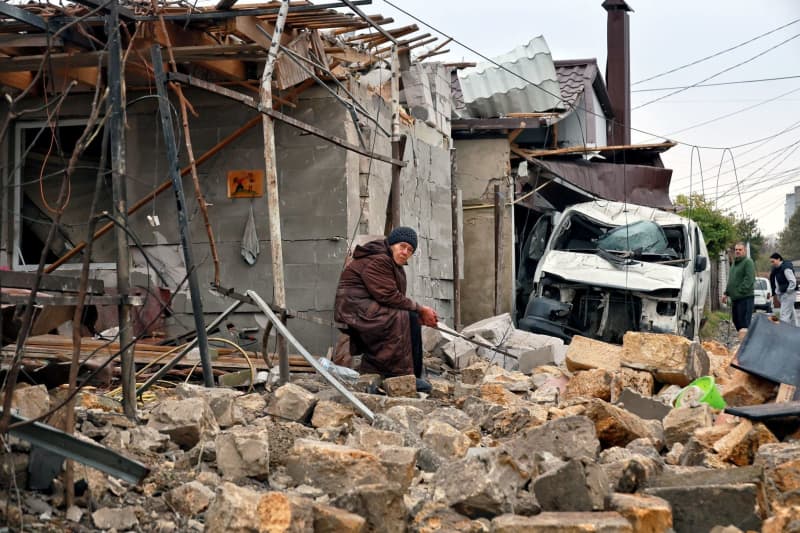The ongoing conflict between Russia and Ukraine has escalated significantly, particularly with the use of drones targeting Ukraine’s civilian population and critical energy infrastructure. According to Matthias Schmale, the UN’s humanitarian coordinator in Ukraine, the current situation is dire, as it marks a possible “tipping point” that could lead to further mass displacement. As of now, approximately 3.6 million individuals have been internally displaced within Ukraine, with many living in emergency shelters for extended periods, highlighting the long-term humanitarian crisis faced by the nation. Schmale characterized the drone attacks not only as military aggression but also as a form of “psychological terror,” instilling a pervasive fear among civilians who are unsure whether the drones overhead are for reconnaissance or imminent attacks.
The impact of drone warfare on Ukraine’s civilian population is immense, leading to an increasing sense of dread and uncertainty. Schmale emphasized the necessity for additional financial support to assist those affected as winter approaches, a season that poses severe challenges for many. The situation is exacerbated by the damage to energy infrastructure, with reports indicating that around 65% of it has sustained partial damage, predominantly in 2023. Ukrainian authorities are working tirelessly to restore energy services, but their efforts must be accelerated before the harsh winter fully sets in. Coordinated initiatives are being established, including communal locations that provide warmth, hot showers, and meals for those unable to access heating in high-rise buildings, which are particularly affected by energy shortages.
From the Russian perspective, the situation has also been marked by heightened military activity. On the same day Schmale made these remarks, the Russian Ministry of Defence reported successfully repelling several Ukrainian drone attacks targeting regions such as Krasnodar and Belgorod, as well as the contested Crimean Peninsula and the Sea of Azov. They claimed to have destroyed 51 drones in this effort. The governor of Krasnodar, Veniamin Kondratyev, acknowledged the drone assault, although he reported no casualties. Conversely, Belgorod experienced a different outcome, with confirmed injuries to three civilians and three soldiers, illustrating the collateral damage that accompanies such military engagements.
These developments are part of a broader strategy by Ukraine to weaken Russian military capabilities by targeting supply routes and infrastructure on the Russian side of the border. The ongoing drone strikes signify Ukraine’s determination to effectively retaliate and disrupt operations beyond its borders, thereby attempting to level the playing field amid the extensive military challenges it faces. The conflict, which has persisted for over two and a half years, showcases the adaptive strategies both nations employ as they respond to the evolving landscape of the war.
In the face of the escalating conflict and its multifaceted implications, humanitarian efforts are increasingly critical. As winter looms, Schmale’s call for increased donations is imperative to provide relief for displaced individuals and communities suffering from the relentless attacks on their livelihoods. The ongoing efforts to restore energy supplies and provide safe communal spaces highlight the pressing need for international support and solidarity with the Ukrainian people. As the situation develops, the unyielding resolve of both combatants continues to influence the dynamics of the conflict, setting the stage for what could be more significant humanitarian crises in the coming months.
Ultimately, while the military actions continue to dominate the headlines, it is essential to remain aware of the profound human suffering at the heart of the conflict. The ongoing displacement of civilians, the psychological impact of drone warfare, and the significant destruction of energy infrastructure all point to a grievous picture that demands a robust humanitarian response. As the world watches this geopolitical struggle unfold, the focus must equally be on the individuals and families who endure the consequences of warfare, emphasizing the need for comprehensive strategies that center on humanitarian assistance and long-term resolution of the conflict.

